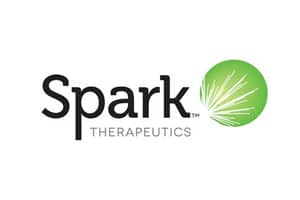 The FDA has started its review of Spark Therapeutics’ rare eye disease treatment Luxturna which, if approved, will be the first gene therapy to get the nod in the US.
The FDA has started its review of Spark Therapeutics’ rare eye disease treatment Luxturna which, if approved, will be the first gene therapy to get the nod in the US.
Luxturna (voretigene neparvovec) is under review for a condition known as biallelic RPE65-mediated inherited retinal disease (IRD), which affects around 3,500 people in the US and EU combined and leads to blindness. There are no drug treatments available to treat IRD, so patients are pinning their hopes on Spark’s one-dose gene therapy.
In trials’ Spark’s therapy achieved a significant improvement over placebo on measures of visual function, with patients on average maintaining those gains over a two-year follow-up period suggesting that the progression to loss of sight could be delayed or avoided.
The FDA is due to deliver a verdict on the biologics licence application (BLA) for Lexturna by 12 January 2018 and it is expected that an advisory committee meeting will be held to discuss the risks and benefits of the gene therapy.
Gene therapies, which alter a patient’s genetic code to knock out or replace disease-associated gene sequences, have had a challenging time navigating through regulatory channels, not least because of serious side effects seen in some early trials of the approach in the late 1990s and early 2000s, linked to the viral vectors used to deliver the therapies. Since then, considerable effort has gone into improving the targeting of viral vectors and their immunogenicity.
While the safety of Spark’s approach will come under close scrutiny, the company can take heart from the pragmatic approach taken by the FDA’s advisors on Novartis’ cell-based CAR-T therapy CTL019, which was passed by unanimous vote last week despite safety concerns. On the other hand, the panel did focus a lot on the viral vector used to modify the CAR-T cells, suggesting that worries about the safety of vectors still linger.
Even if Luxturna reaches the market, Spark could face challenges setting an acceptable price and reimbursement model for the gene therapy, with no prior experience to draw on in the US and little experience elsewhere.
The first (and so far only) gene therapy to reach the market in the EU – UniQure/Chiesi’s €1m-per-treatment Glybera (alipogene tiparvovec) for lipoprotein lipase deficiency (LPLD) – was withdrawn from the market in April this year due to a lack of demand. GlaxoSmithKline is nearing the market with its Strimvelis candidate for ADA-SCID but has yet to discuss pricing plans.




